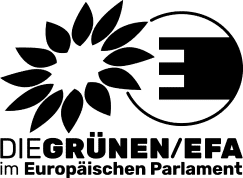Are things finally moving in Europe? I’m carefully optimistic but I think caution is needed when assessing the initiative for a COVID-19 Recovery Fund. Merkel and Macron, the leaders of the two largest EU countries agreed to push for a common EU fiscal response in the form of a EUR 500 billion debt issuance at the level of the EU-budget.
What does this mean in practice?
The EU Commission would borrow money in the financial markets and pay interest and repayments from the common EU budget of all 27 member states. Some countries, Germany and France included, contribute more into the EU budget than others. So, in effect, this structure allows sharing part of the financial cost of fighting the crisis on the financially strongest shoulders in Europe and it allows for payback over many years through the EU budget.
What does this mean for EU politics?
I believe that this is an important positive step forward, which was needed because in the last weeks and months the indecision and national thinking of leaders in the EU has started to pose a real risk to our common European future.
But if we look a bit closer at what Merkel and Macron actually said, we should ask ourselves in how far a French-German initiative reflects pan-European interests. If we listen carefully, they were mostly talking about the same old interests that their governments push for all the time anyways:
- An industrial policy that artificially creates European Champions by weakening competition law in Europe, at the expense of small and medium-sized companies and start-ups, whose protection against unfair competition from their big and more powerful competitors would be weakened.
- There was also no real mention of new common EU sources of revenue, such as digital taxes, CO2 emissions trading or a tax on non-reusable plastic.
Summary: this was important but I think we should not mistake this for more than it is: it’s a French-German initiative. It pushes the French-German industrial narrative, its not particularly ambitious on climate change and resilience and it does not give EU institutions a big role.
What’s next?
Now we need to turn this French-German push into a pan-European solution that works not just for two countries but for all 27. In the long run, Volt Europa and I want a fiscal union, with full democratic control, an EU finance minister and Treasury, which answer to the European Parliament.
In the short term, my office and I are working on two legislative files that may be at the centre of how a Recovery Fund is being spent. They have complicated names, Reform Support Programme (RSP) and the Budgetary Instrument for Convergence and Competitiveness (BICC), but they are commonly referred to as the common Eurozone budget.
There we will try to make sure that funds for the European Recovery are allocated with a European plan to encourage the necessary reforms and investments to increase resilience and crisis preparedness all over the EU and to contribute to a sustainable and socially-balanced recovery from COVID-19.
More updates on this work will follow as we progress.
Let us know what you think. We’d love to have your ideas on this!

